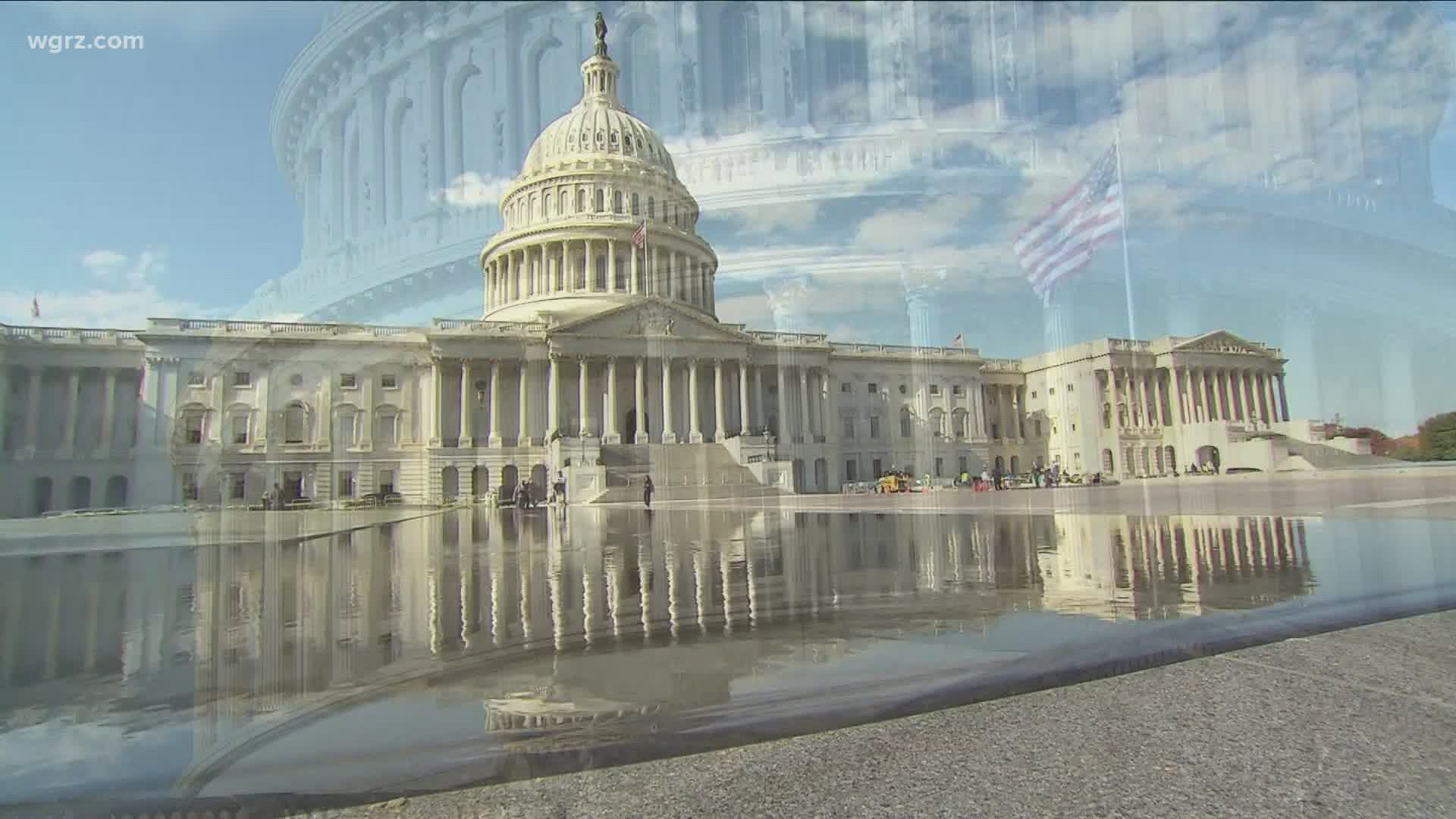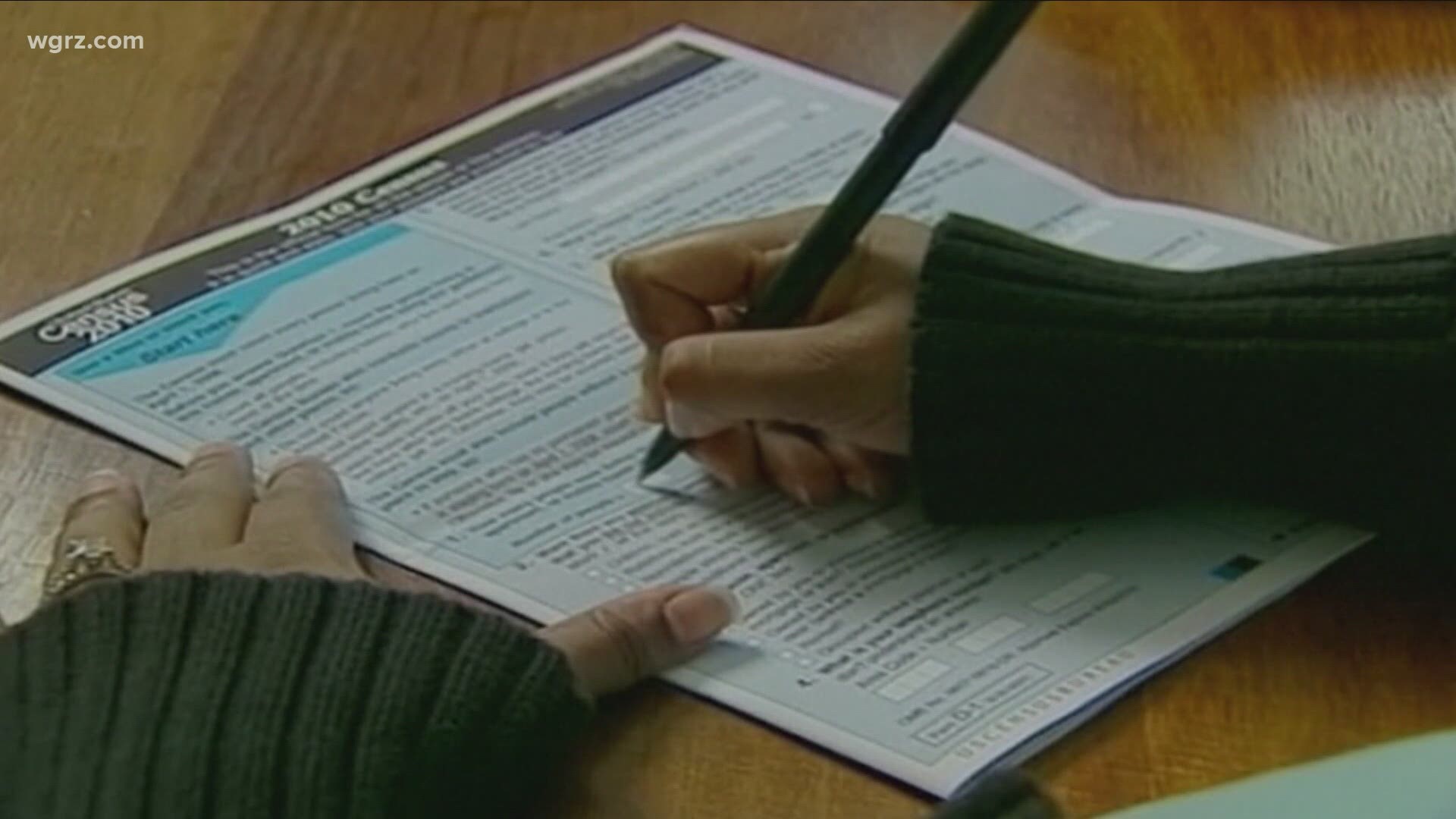NEW YORK — Census data released Monday means that New York will lose one seat in Congress as a result of national population shifts.
The state’s delegation will shrink from 27 to 26. It is one of seven states losing a member of Congress as a result of the 2020 census.
The state stands to lose out on more than political clout: The census also determines the distribution of $1.5 trillion in federal funding each year.
Redistricting Battle Looms
This now sets up redistricting, the process of redrawing congressional district maps, which is likely to be another battle fraught with politics, and winners and losers.
First, the state legislature appoints an independent commission, with an equal number of Republicans and Democrats, to draw new district maps in time for the congressional midterm primary elections next year.
However, the state legislature can ultimately overrule the committee and come up with its own district maps. This was the case after the last census in 2010, when the Republican controlled State Senate and the Assembly, controlled by Democrats, where then deadlocked with a judge ending up having to rule on the maps. Things are different this time around.
To The Victors Go The Spoils
The old adage that to the victors go the spoils may play prominently for this redistricting, as both houses of the state legislature are currently controlled controlled by Democrats.
It is likely Democrats will try to ensure that the congressional district New York will lose is one held by a Republican, and as most of those are upstate, the odds are it will it occur there, and possibly in Western New York
Dave Wasserman, US House Editor of the Cook Political Report has already tweeted a map of a scenario based on his sources, whereby two Western New York districts, largely Republican, are merged to eliminate one of them, while other lines gerrymandered other lines to create "safer" districts for Democrats where the vote is more split. He notes these moves could reduce the number of Republican Congress members in the state from eight to just three.
It's A Little Early to Tell
To pinpoint precisely which district may be eliminated; however, is still speculative, as the census won't release block-by-block population counts (upon which the new maps will be drawn) until the end of September.
The only thing we know is that the state should have one less member in the House of Representatives when all is said and done.
"It's all about delegation clout," said Thomas Reynolds, a once powerful congressman from Western New York who is now a senior policy advisor at Holland and Knight law in Washington.
"The impact of the New York delegation will be less because it's one less voice," Reynolds said.
Still a lot of Clout for NY
Despite the loss of a congressional seat, (and subsequently one electoral vote in the next presidential election) New York will still have more members of Congress than 46 other states.
It also could be argued that - more than the number - it is the influence those members of Congress hold that matters most.
And on that count, New York's delegation has some of the most prominent politicians in Washington, not the least of whom is Sen. Chuck Schumer, the most powerful member of the senate as majority leader, and the first New Yorker to ever hold that post.
How New York Lost the Seat
Every 10 years the United States conducts a census, data from which is used, among other things, to allow each state based on its population, proportional representation in the U.S. House of Representatives
There are 435 seats in the House, so based on the 2010 census, each member represented a district of about 710,000 people.
With the nation’s population having climbed to 330 million people in the newest census, but the number of seats in the house unchanged, each member of congress will represent 761,000 residents. (States with a population less than that still are entitled under the Constitution to have one member of Congress)
This is where New York lost a seat, because while it actually gained 823,000 residents in the last decade, other states, particularly low tax states in the south and the west grew at a faster pace.
That is why Texas, for example, which grew by 4-million residents, will gain two seats and two electoral votes and why New York, despite a net population gain, will lose one of each.
Losing congressional seats is nothing new, for New York and continues a decades long trend for the state. It has lost between one and five seats after every census since 1950, when it had 45 members of Congress, as opposed to the 26 it will now have.
This story includes reporting by the Associated Press



